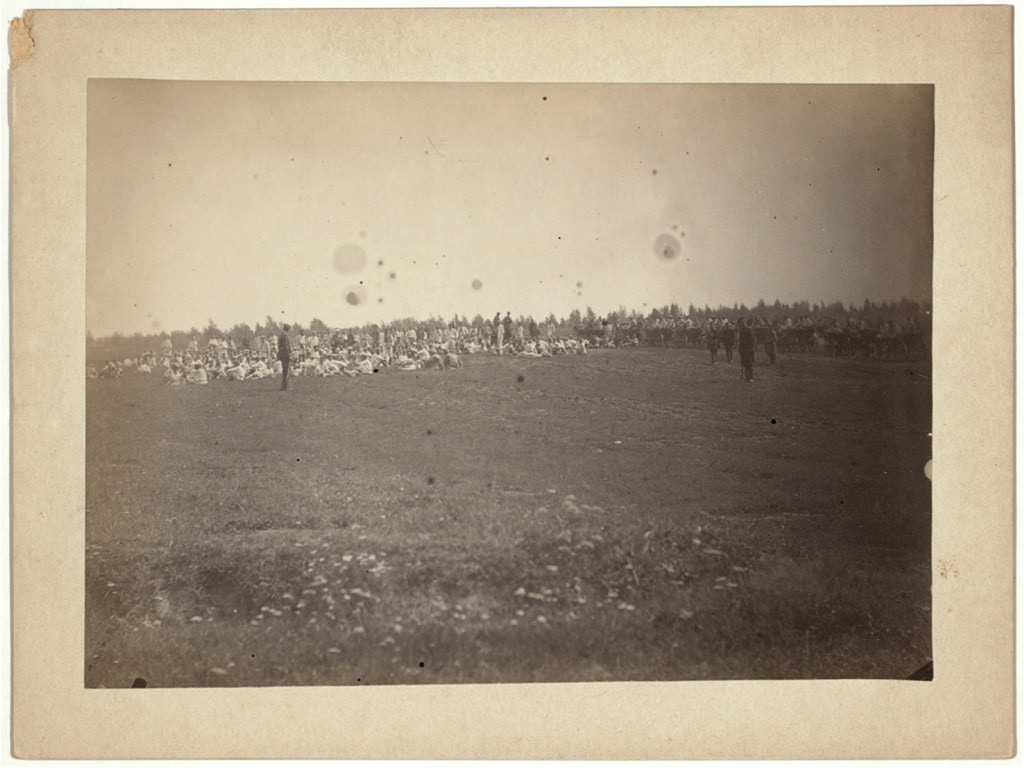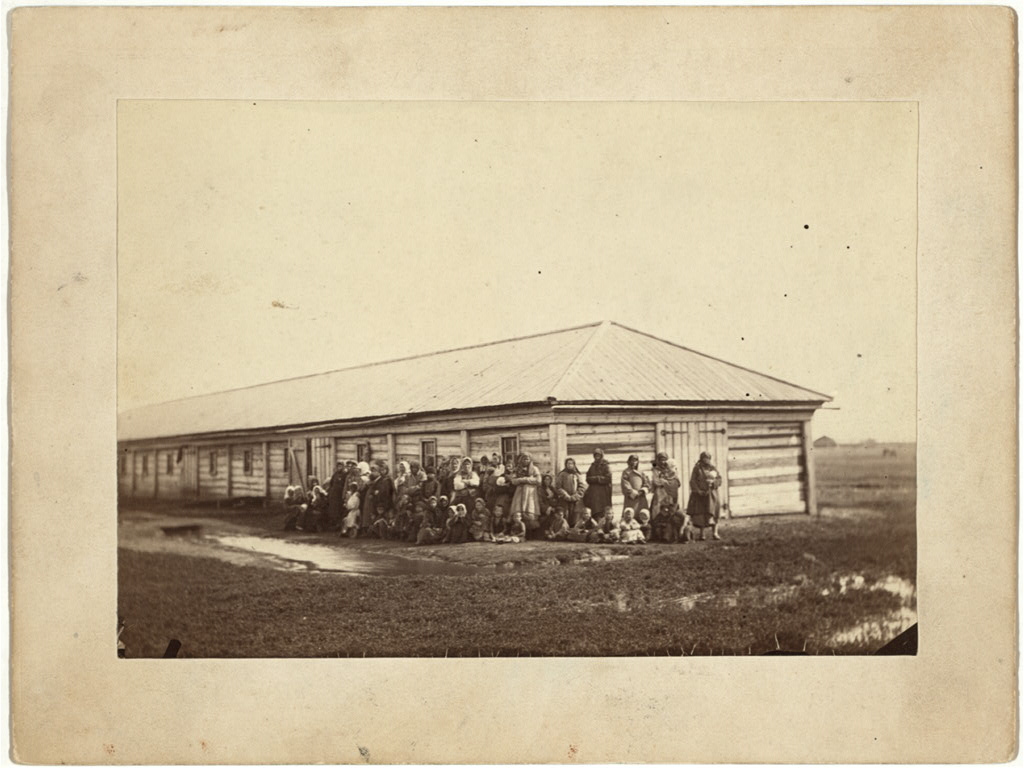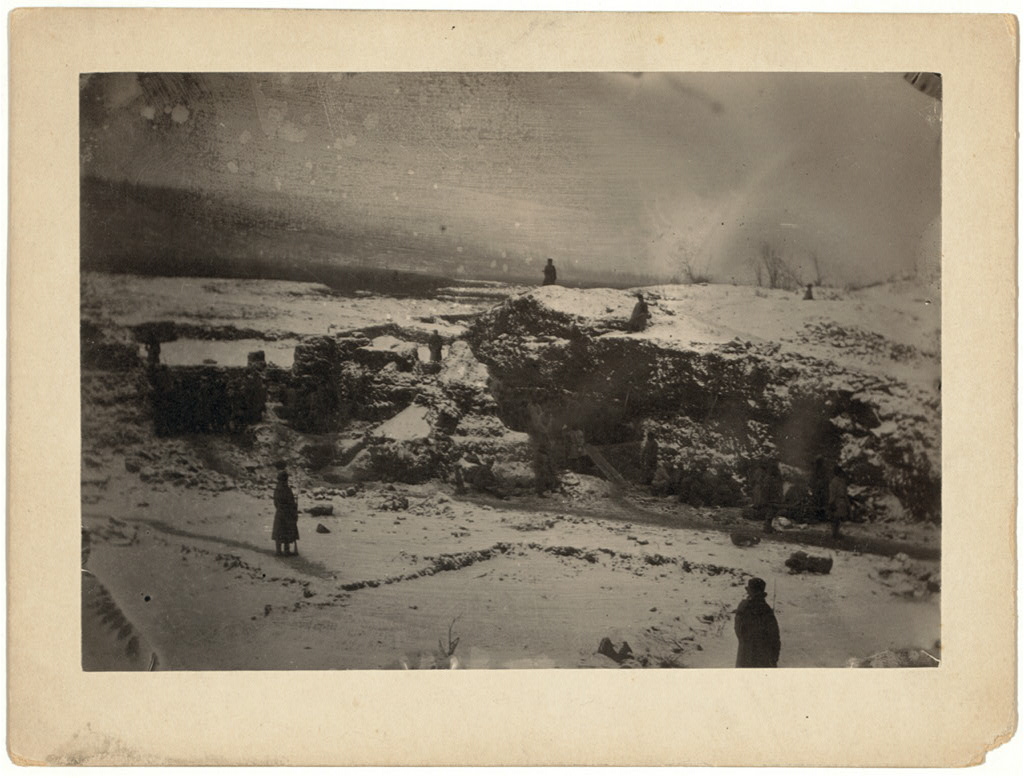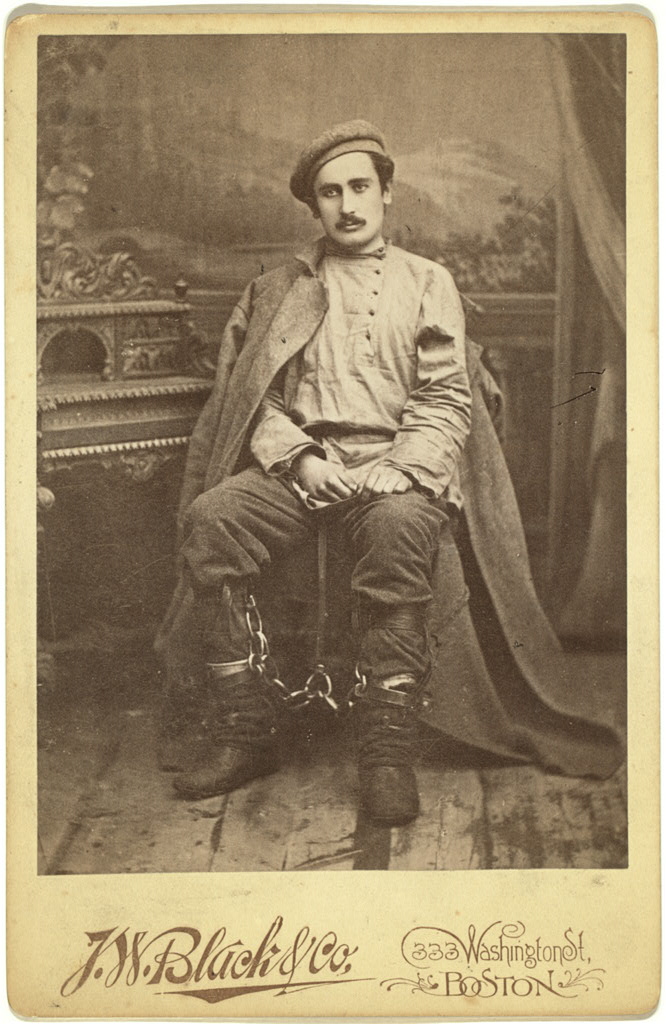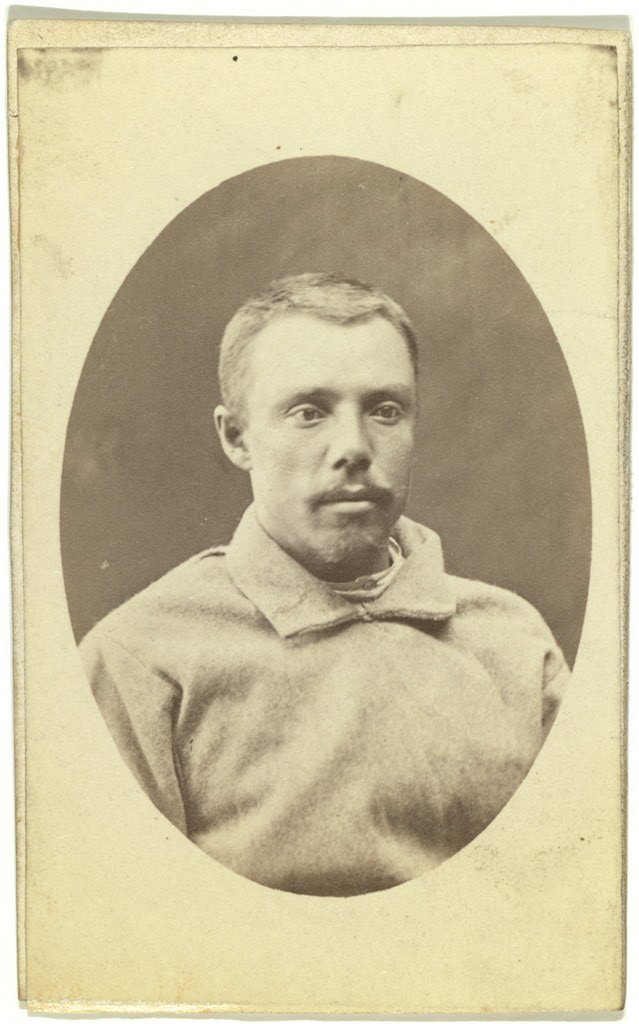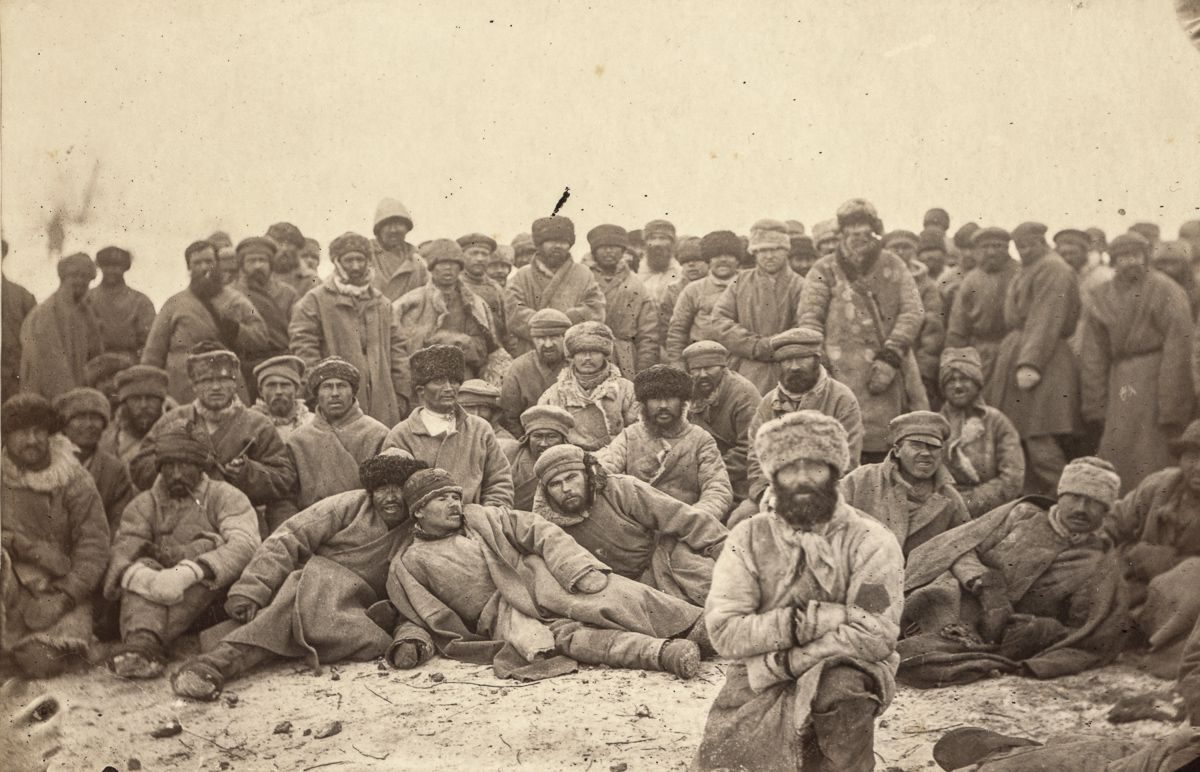
First sent from his native USA to Russia by his employers at the Russian-American Telegraph Company to survey a route for a proposed overland telegraph line through Siberia and across the Bering Strait, George Kennan (February 16, 1845 – May 10, 1924) returned to Siberia in 1885. In the intervening years, Emperor Alexander II had been murdered in 1881. His son and heir, Alexander III, cracked down on dissidents, approved a wave of anti-Jewish legislation and pogroms, and oversaw the exile of thousands of prisoners to remote penal colonises in Siberia. Kennan, who was travelling with the State’s approval on account of his previous support for the march of Russian civilization, saw the unfolding horror and was changed.
Although Siberia had been used as a place of exile by the Russian government since the end of the sixteenth century, during the Napoleonic Wars and after the number of prisoners had increased exponentially. Prisoners of war, political prisoners, and religious schismatics and their families, were joined by thieves and murderers. After time spent in prison, most of these people, often accompanied by their families, were then left to their own devices to feed themselves, in a economy where they could rarely find full occupation.
On his return to the United States in August 1886, Kennan became an vociferous critic of the Russian regime. His reports on conditions in Siberia were published serially by Century Magazine, and in 1891, he published a two-volume book Siberia and The Exile System. He helped found Free Russia, the first English-language journal to oppose Tsarist Russia. In 1901, the Russian government banned him from Russia.
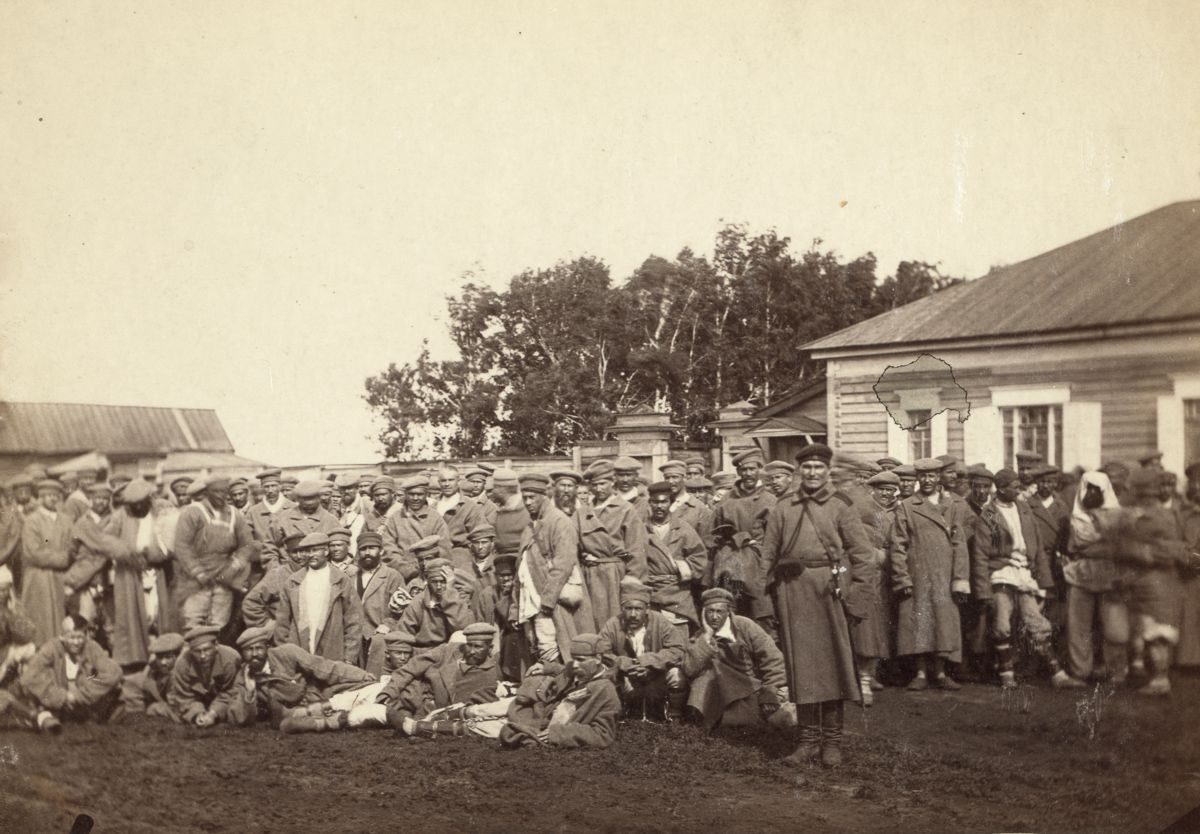
Convicts at Tyumen wait to board barges on the Ob River for transport to prisons around Siberia.
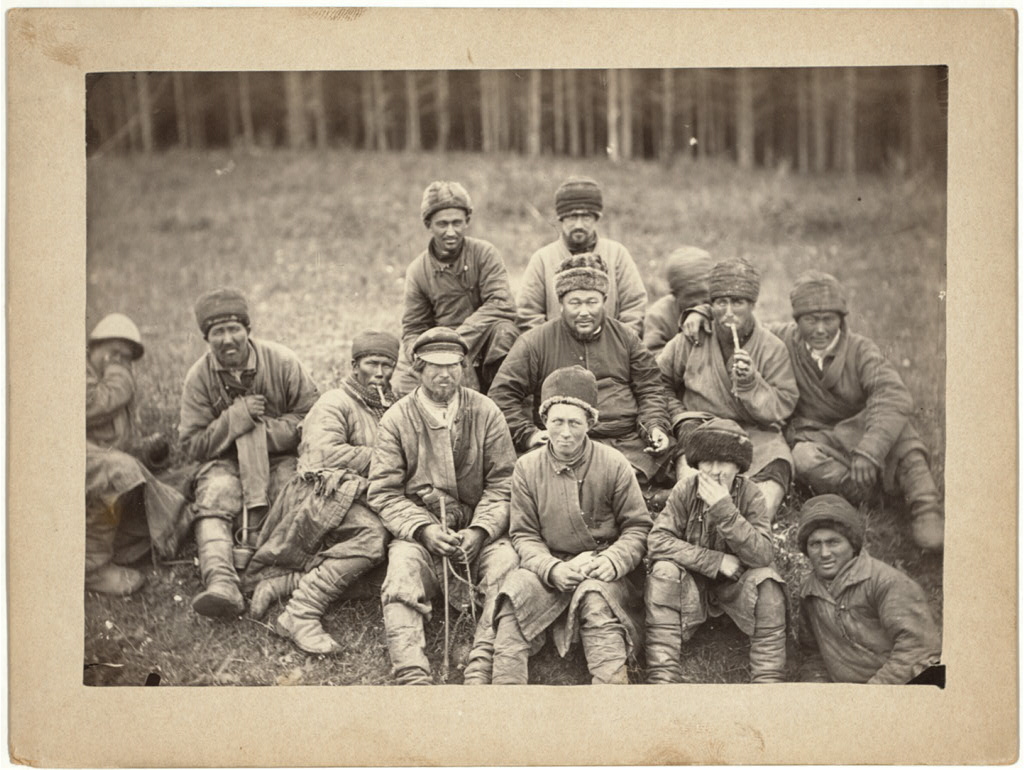
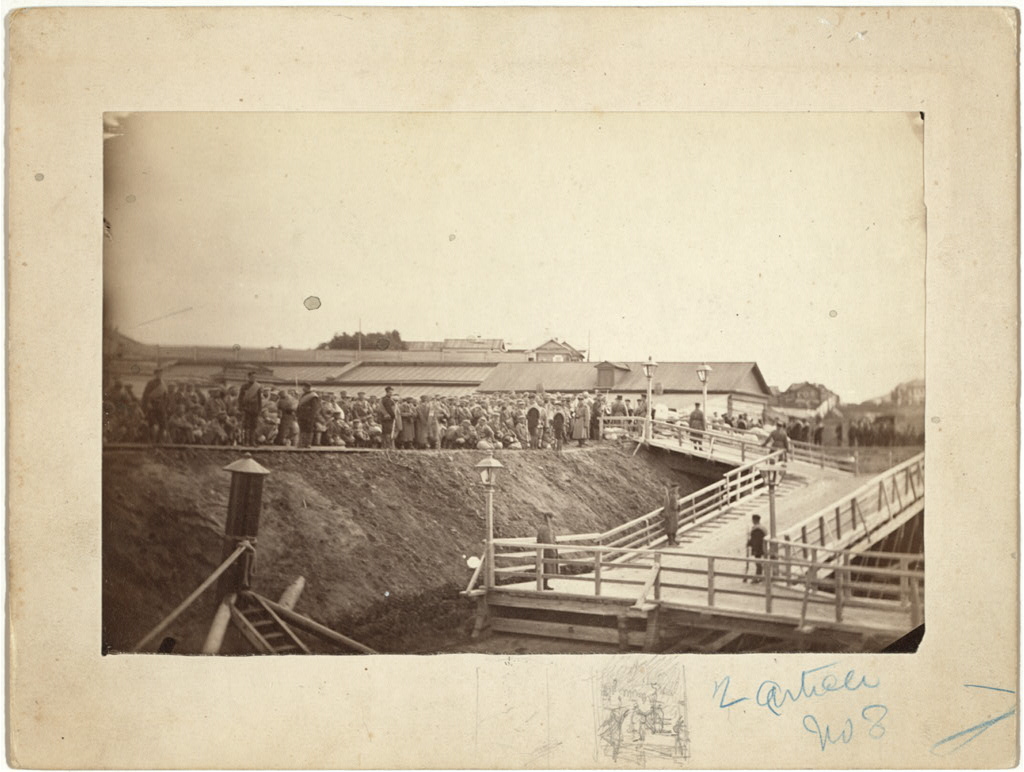
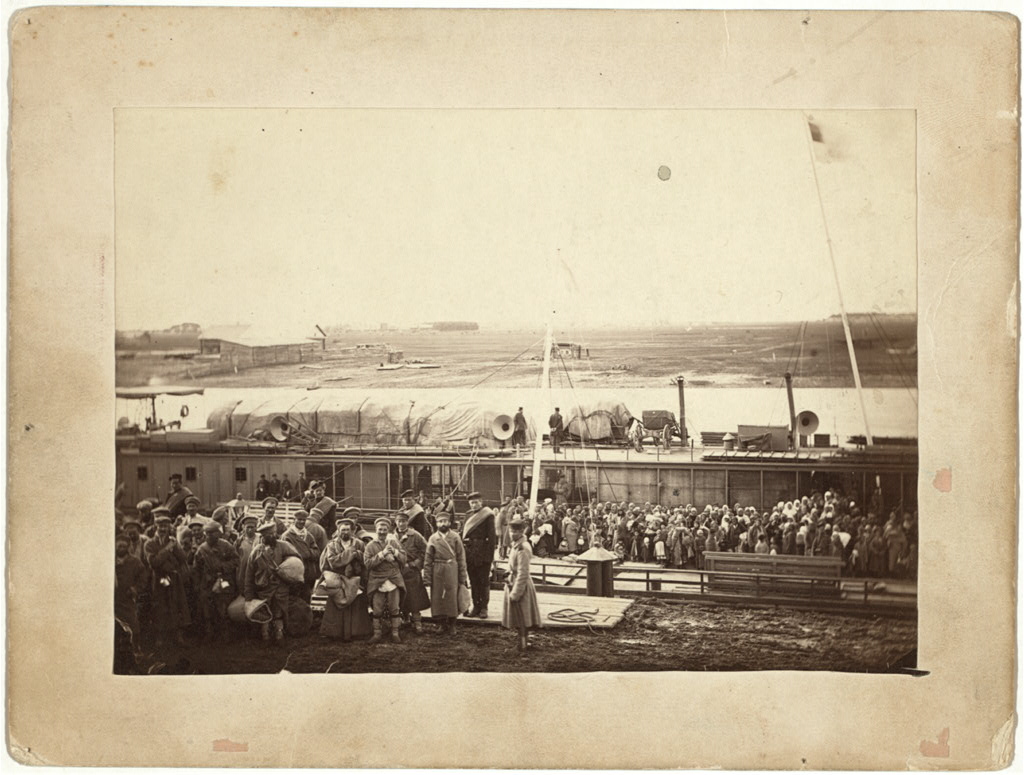
Party of exiles and convicts embarking on river barge at Tumen
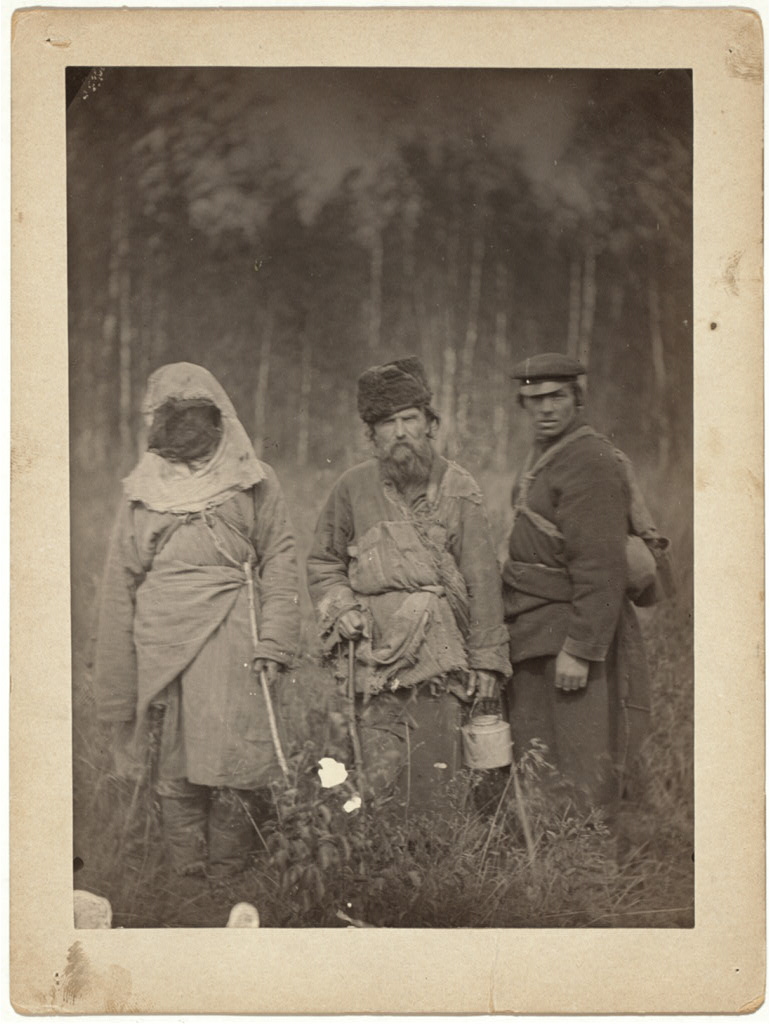
Runaway Siberian convicts
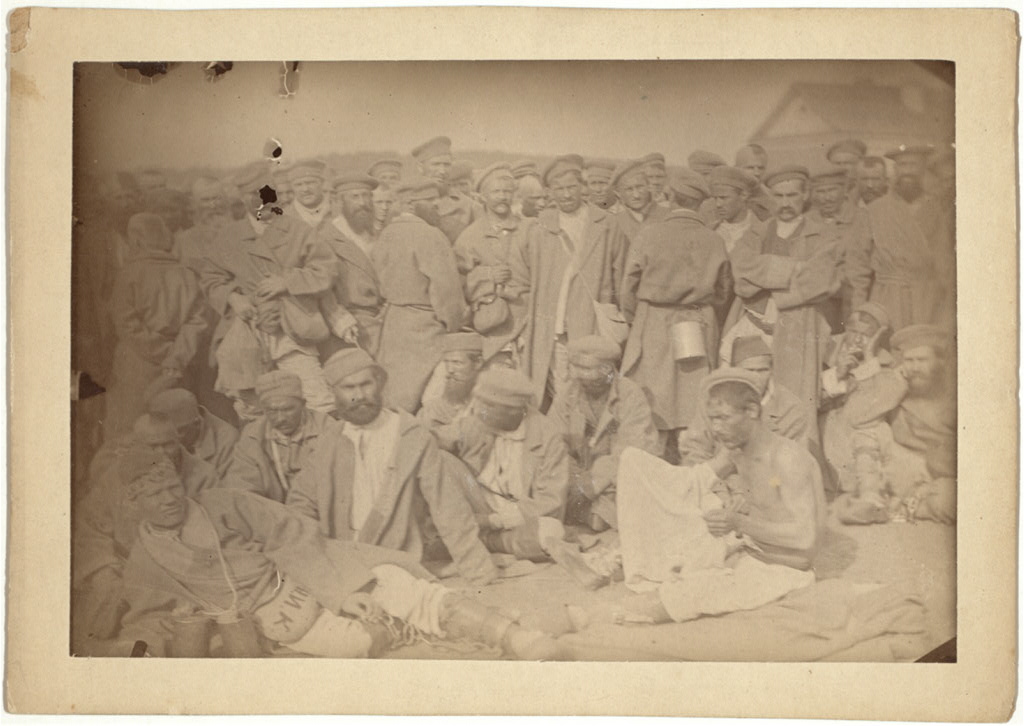
Group of prisoners on the road beyond Tomsk
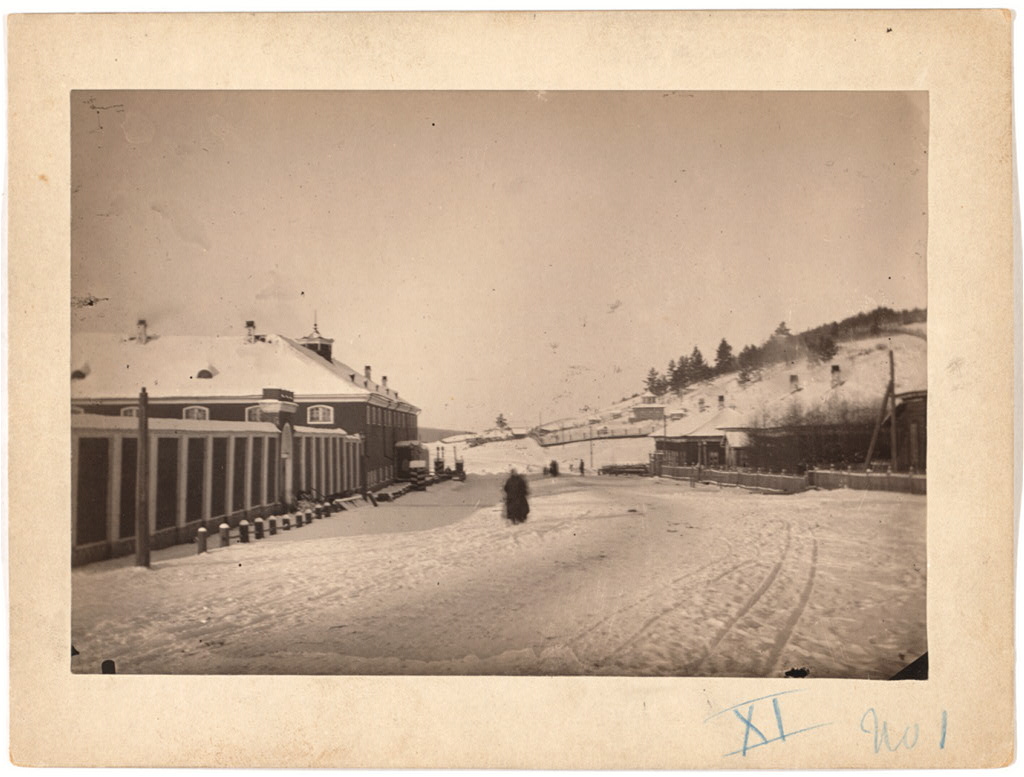
Alexandrofski central prison about sixty versts from Irkutsk
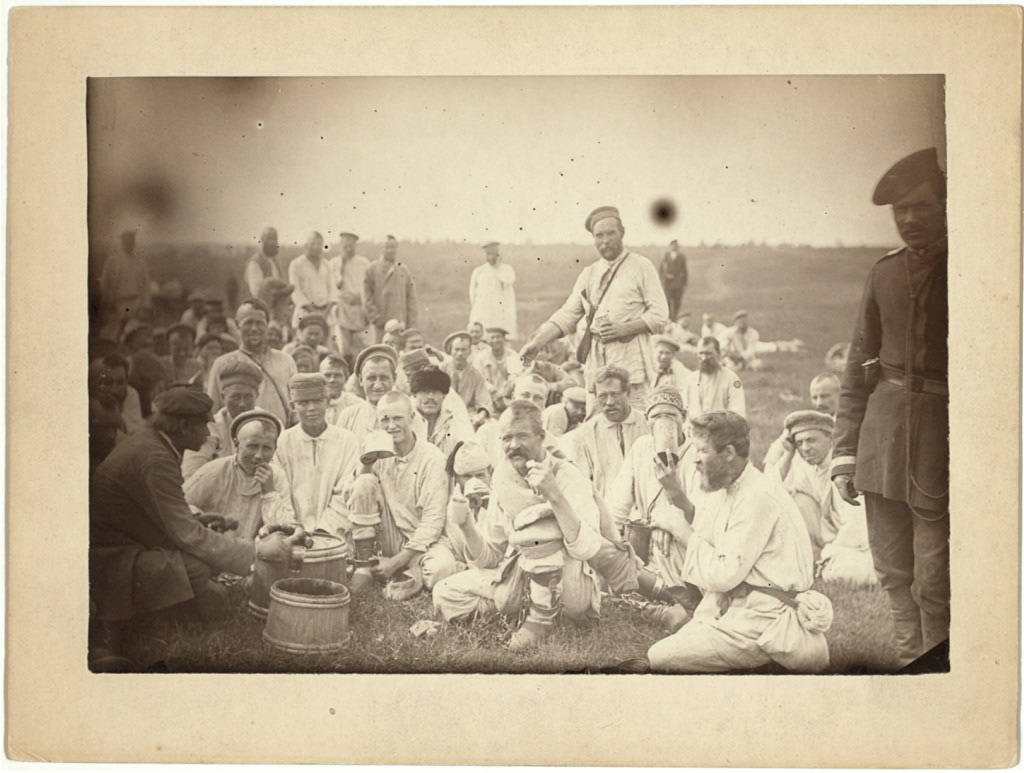
Siberian convicts taking lunch by the roadside
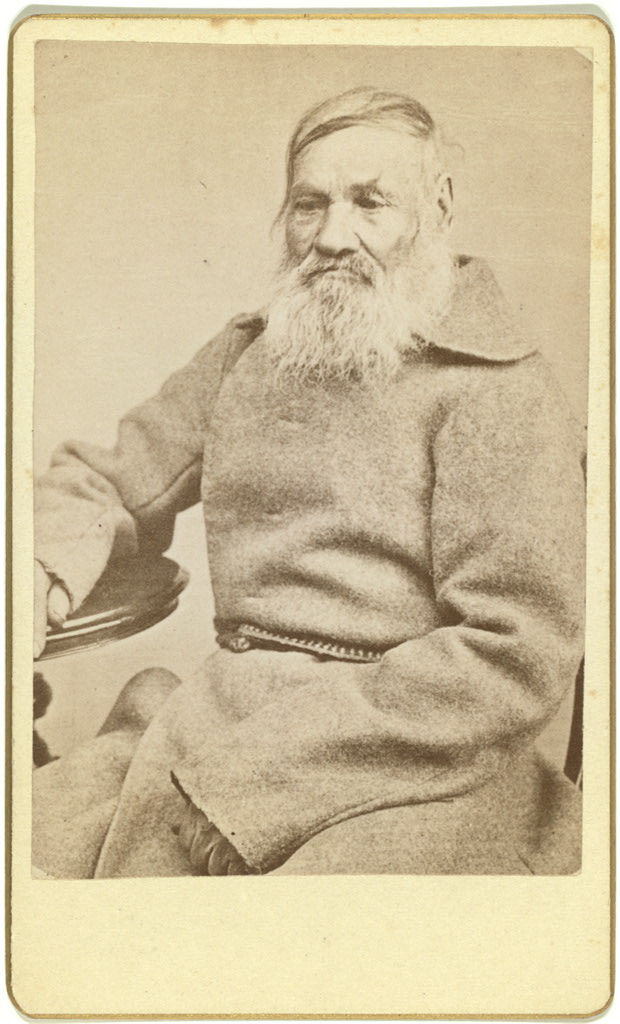
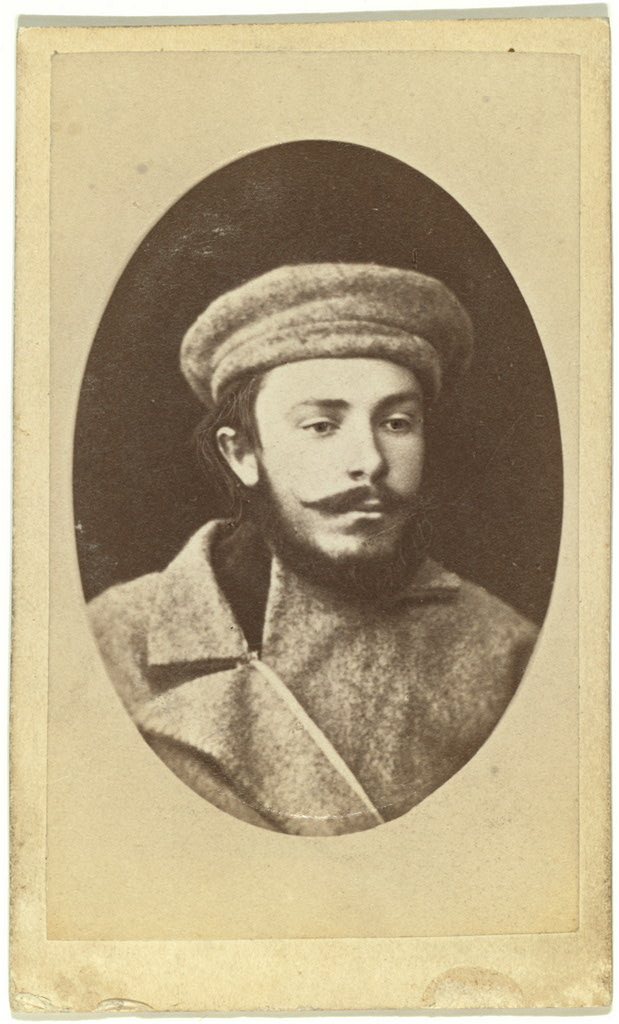
Dikofski, sentenced in Odessa to 15 to 20 years.
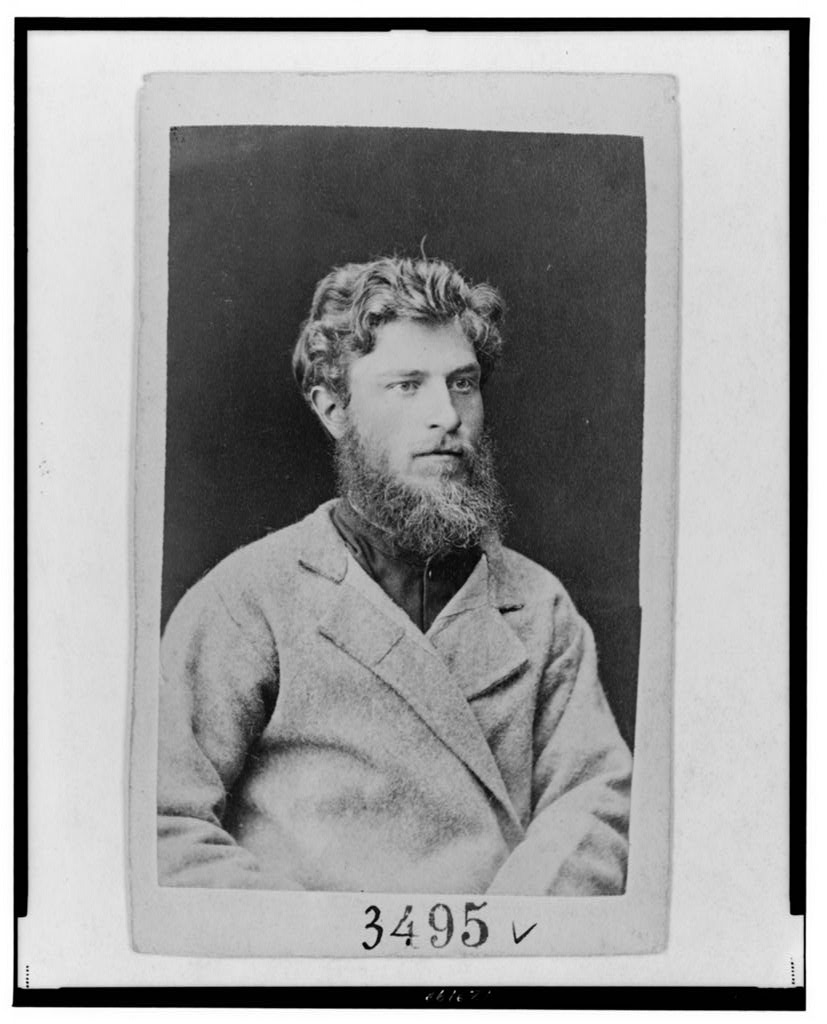
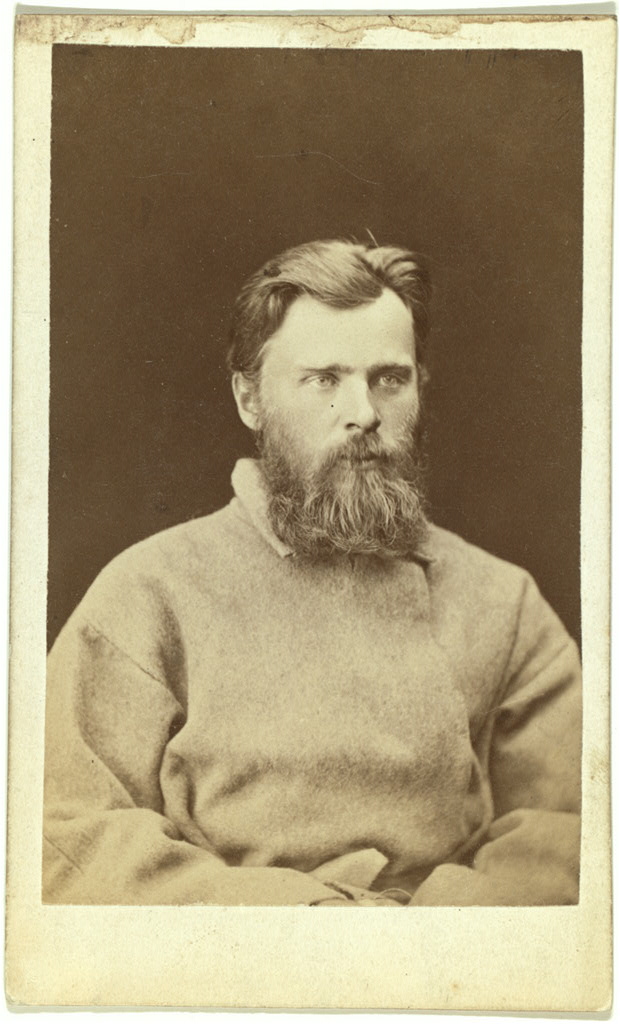
Kardashof, a political exile living in the Buriat village of Selenginsk who had served his penal term at the Kara gold mines.
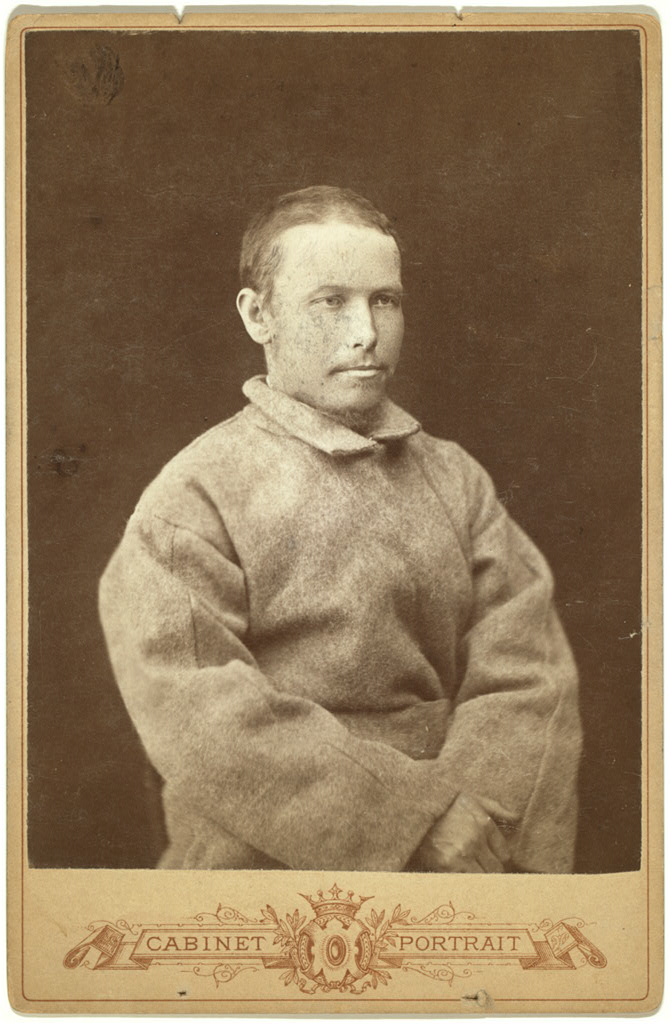
A prisoner named Mikhailof.
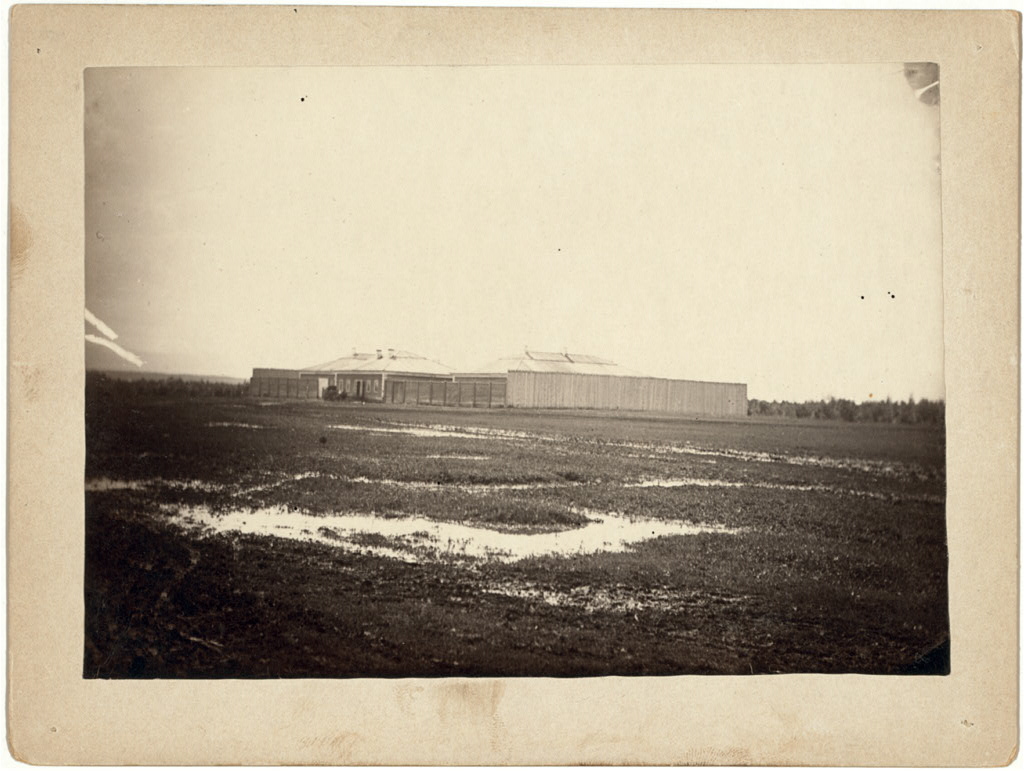
A Siberian etape or exile station house
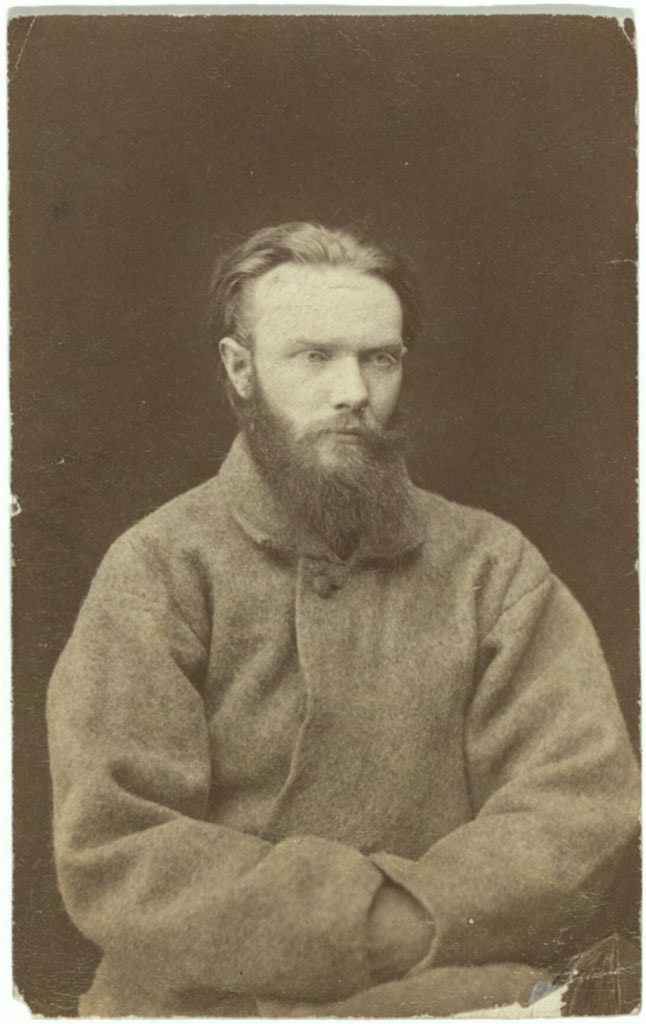
Shchedrin, a schoolteacher – political prisoner at the Kara gold mines who escaped in April 1882 by tunneling under the prison wall. He and other prisoners were recaptured and permanently chained to wheelbarrows, before being sent to isolation cells at the castle of Schlisselburg.
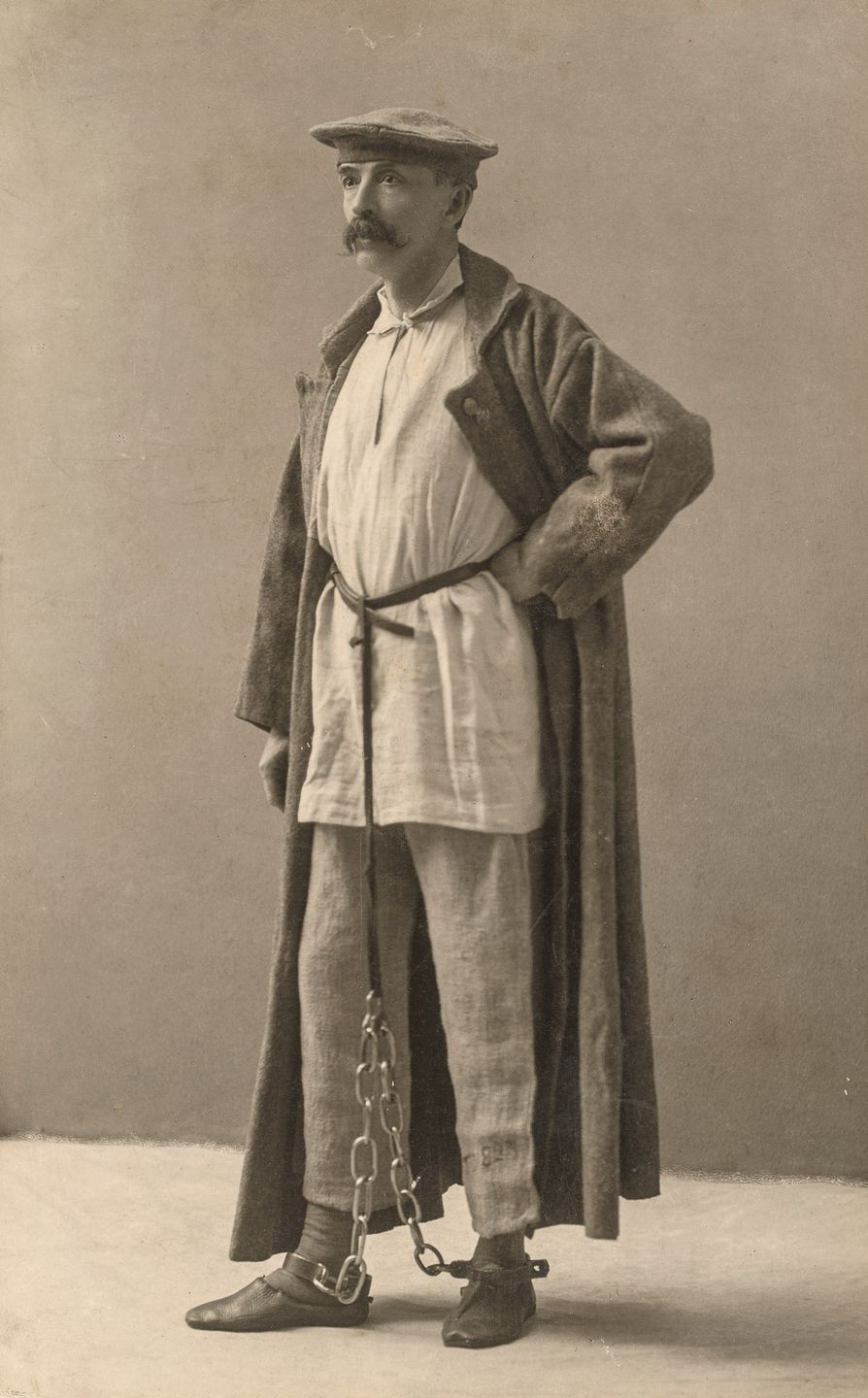
George Kennan poses in Siberian exile dress, each piece given to him by an exile from the dress he had worn
Would you like to support Flashbak?
Please consider making a donation to our site. We don't want to rely on ads to bring you the best of visual culture. You can also support us by signing up to our Mailing List. And you can also follow us on Facebook, Instagram and Twitter. For great art and culture delivered to your door, visit our shop.

